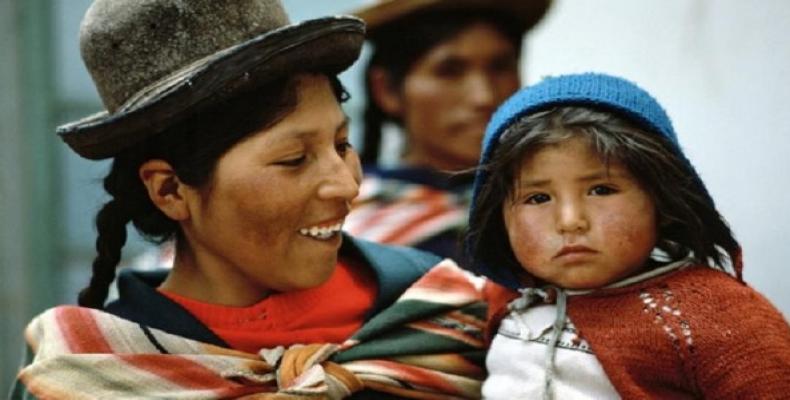La Paz, July 24 (teleSUR-RHC)-- The poorest 40 percent of the population in Bolivia has seen an increase in their earnings compared to the national average, a World Bank economist said on Thursday in La Paz.
Progressive policies under Bolivian President Evo Morales, including redistribution and inclusive development measures that prioritize the poorest sectors of society, have been credited with enabling income rise, according to World Bank economist Peter Siegenthaler.
“This is a very important achievement,” said Siegenthaler, explaining the economic boost among the country's poorest allowed Bolivia to graduate to the range of a middle income country, which gives “a lot of stability to the macroeconomic situation.”
The new statistics come as the Bolivian government expects national economic growth for the third year in a row, to put it top for growth among South American countries. Official forecasts predict a 5 percent increase in the Andean nation's GDP in 2015. Under the government of Evo Morales, from 2005 to 2013 Bolivia's total GDP growth tripled.
Since 2005, Morales has also helped facilitate the passing of a new constitution and implement a variety of state funded social programs, which have reduced extreme poverty from 38.2 percent in 2005, to 21.6 percent in 2012.
Bolivia has also seen the strongest increase in minimum wage in recent years of any Latin American country, according to the International Labor Organization. Up by 104 percent between 2005 and 2013, the increase in minimum wage has been a major factor in poverty reduction.


